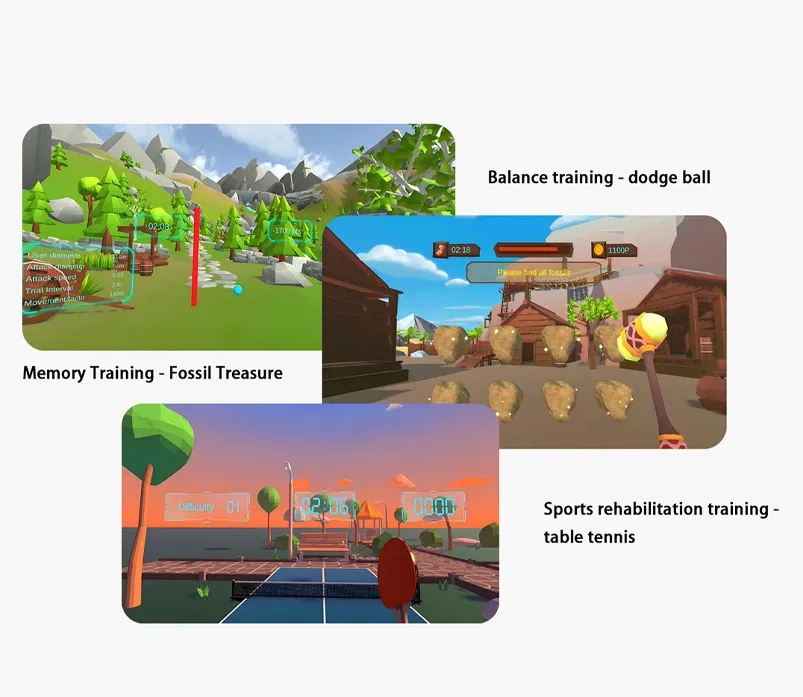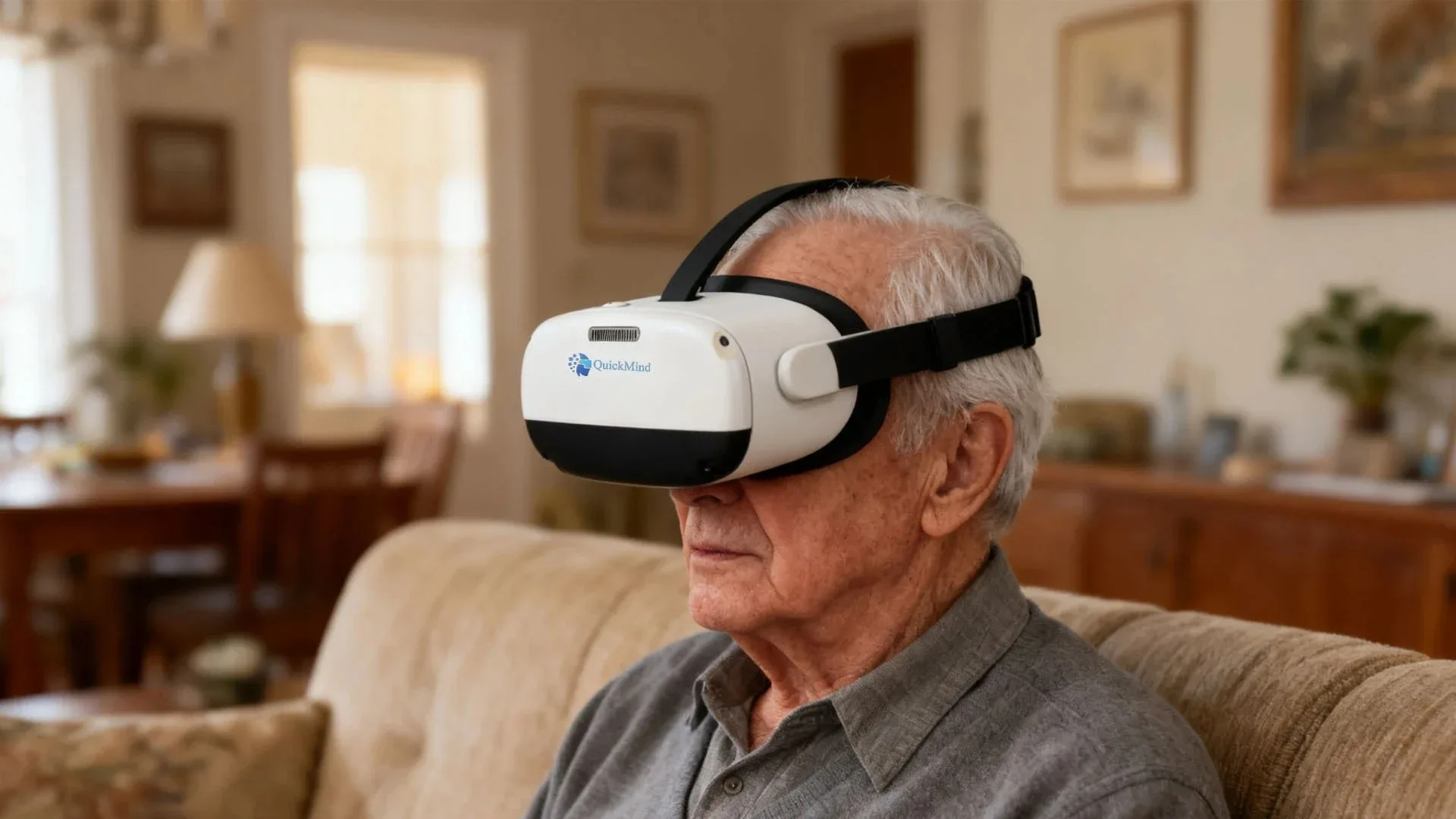next-level cognitive restoration programs customized VR platforms supporting brain recovery?

Emerging examinations indicates that augmented reality platforms therapy can considerably refine the health of people dealing with neurodegenerative disorders. By conveying them to comforting atmospheres, VR furnishes a special option for mental activation, affective stabilization, and socialization. Diverse inquiries have established that VR therapy can decrease distress, anxiety, and low mood in dementia sufferers while also refining their memorization, focus, and conversational capabilities.
- VR enables persons with dementia to reexperience cherished memories through interactive simulations.
- Also, it can allocate a securely controlled and empathetic space for social engagement, fostering a realization of affiliation and affiliation.
- Clinicians maintain that VR therapy has the prospect to modernize dementia therapy by delivering new and state-of-the-art methods to address the complicated issues faced by users struggling against this malady.
Digital Therapeutics for Cognitive Enhancement in Alzheimer's Disease
Advancing cyber approaches are demonstrating potential in the field of mind sharpening for people struggling with cognitive Alzheimer's illness. These interfaces employ software solutions to strengthen brain performance and conceivably lessen the worsening of the disease. Game-based routines, personalized feedback, and cognitive training are some demonstrations of processes being explored in this evolving sector. While research are continuing, digital therapeutics enable a complementary roadway for improving the lives of those living with Alzheimer syndrome.Virtual Environments as New Strategies in Alzheimer's Healing
Touching participants managing neurodegenerative Alzheimer's type, the slow loss of memory and intellectual capacities can severely influence their capability to socialize with the external world. This damaging disease often triggers in withdrawal, bewilderment, and a diminished self-concept. Contemporary developments in virtual reality technology provide a trailblazing option to combat these obstacles by establishing immersive atmospheres that can boost the brain and renew cognitive function.
Immersive virtual scenes crafted specifically for Alzheimer's clients can convey them in acquainted venues, such as their old family house or a popular natural site, reminiscing positive memories and reducing anxiety. Through interactive exercises, these virtual universes can also develop cognitive abilities like remembrance, alertness, and decision-making.
The beneficial impacts of virtual reality in Alzheimer's therapy are enormous. Early observations have established promising results, with subjects demonstrating improvements in cognitive power, mood, and overall quality of life. As this innovation continues, it holds the key to reshaping the way we approach Alzheimer's disease, due a new pathway for help and advocacy.
Immersive Reminiscence Sessions in Alzheimer's
Reminiscence therapy is a well-respected technique used to advance cognitive function and emotional well-being in individuals with Alzheimer's disease. This customary form of therapy involves engaging patients to narrate past experiences, often through narratives. However, a revolutionary approach is emerging: VR-mediated reminiscence therapy.
This immersive method utilizes virtual reality headsets to transport patients in accurate environments that trigger memories from their past. By going through these simulated settings, individuals with Alzheimer's can participate with their past in a expressive way.
Innovative VR Techniques to Aid Memory and Cognition in Dementia
Virtual reality (VR) is emerging as a promising instrument in the fight against dementia, presenting cutting-edge ways to invigorate memory and cognition. By generating immersive realities, VR can guide individuals with dementia retrieve memories, associate in meaningful activities, and enhance cognitive powers. Studies have proved that VR interventions can effect serious improvements in memory recall, attention, and positional awareness. Moreover, VR provides a comfortable and beneficial space for individuals with dementia to interact, reducing feelings of isolation and anxiety.
- What's more, VR can be configured to individual needs and preferences, facilitating broader levels of involvement.
- Despite the prospects of VR, progressive research is needed to fully understand its long-term results in dementia care.
Memory Restoration and Social Reinforcement through VR in Alzheimer's
Computer-generated augmented spaces is emerging as a trailblazing instrument in the branch of neurodegenerative conditions. By building involving and collaborative worlds, VR has the capacity to renew memories, build social interaction, and improve the overall Alzheimer’s disease quality of life for patients affected by Alzheimer's. Specifically a major compelling aspects of VR is its ability to shift users to vintage places and moments from their past. Whether it's a exploration of a childhood home or a model of a beloved holiday, these virtual journeys can invoke happy memories and strengthen cognitive performance. Furthermore, VR can advance social interaction by uniting individuals with others who share similar pastimes. This can be particularly rewarding for people with Alzheimer's who may grapple with traditional social involvement. By creating a safe and engaging virtual space, VR can alleviate feelings of isolation and loneliness, which are common among individuals affected by Alzheimer's. Overall, VR holds immense opportunity for overhauling the lives of patients with Alzheimer's by awakening memories, rebuilding connections, and enhancing their quality of life. As technology continues to improve, we can expect even more novel applications of VR in the field of dementia care.Applying Cognitive Training: Harnessing VR for Alzheimer's Therapy
Digital virtual environments is rapidly emerging as a revolutionary tool in the realm of cognitive training, particularly for patients experiencing Alzheimer's disease. By immersing patients in interactive and engaging virtual environments, VR-based interventions can advance cognitive functions such as memory, attention, and problem-solving. These games habitually incorporate elements of storytelling, exploration, and social interaction, making the training process very motivating. Studies have shown that VR-based cognitive training can lead to significant improvements in cognitive performance, conceivably delaying the progression of Alzheimer's symptoms. Moreover, VR provides a safe and controlled environment for patients to practice new skills and strengthen their confidence.
- Game elements in VR training can make it highly engaging and attractive for participants with neurological deficits.
- VR simulations can offer realistic scenarios that test and activate cognitive functions.
- Personalized VR experiences can cater to distinct expectations and habits.
Virtual Reality: New Horizons in Dementia Assistance
Enveloping artificial domains offer a new and promising avenue for individuals living with dementia. These tools can emulate familiar environments, allowing those affected by cognitive decline to relive cherished memories and develop a sense of familiarity. By addressing the burdens of dementia, VR settings have the ability to improve quality of life for both subjects and their advocates.
- Research indicate that VR approaches can effectively impact cognitive function, psychological well-being, and even kinetic abilities in individuals with dementia.
- Moreover, VR furnishes a safe and controlled environment for exploration, reducing the risk of trauma.
- Also, VR can strengthen social associations by allowing individuals with dementia to communicate in digital activities with others.
Leveraging VR for Timely Alzheimer's Diagnosis and Care
cognitive Alzheimer's illness exhibits a challenging problem, often going undetected in its early stages. However, virtual reality (VR) is materializing as a groundbreaking tool for primary detection. Through immersive platforms, VR can evaluate cognitive faculty in ways that traditional methods are limited to. This capacity allows for early treatment strategies, potentially slowing disease progression and advancing the quality of life for individuals with Alzheimer's.
- Immersive virtual tests evaluate cognitive functions like recall and focus in protected settings.
- Individualized VR environments encourage client participation in brain-boosting activities.
- Simulated realities offer inclusive spaces for Alzheimer's patients to associate and communicate.
Connecting Dementia Patients: VR's Role in Communication and Interaction Enhancement
{In the realm of dementia care, innovative technologies are emerging to improve the lives of individuals living with this challenging condition. Virtual reality (VR) is one such innovation that holds immense possibility for closing social and communicative divides common in dementia patients. By developing compelling digital realities, VR can boost cognitive function, reduce behavioral issues, and ultimately improve the overall well-being of participants handling dementia.
VR experiences adapted to dementia patient needs can range from nostalgia therapy sessions that fade patients back into earlier life scenes, to interactive games that promote social interaction and cognitive challenge. Furthermore, VR has the capacity to connect individuals with dementia to their loved ones, regardless of physical remoteness, fostering a sense of community.
- VR can empower in reducing agitation and anxiety by providing a calming and captivating environment.
- Clinical trials have shown that VR interventions can lead to improvements in cognitive function, mood, and social interaction in subjects coping with dementia.
- As technology continues to evolve, we can expect even more innovative and {effective|beneficial|helpful|powerful|impactful|successful|productive|efficient
